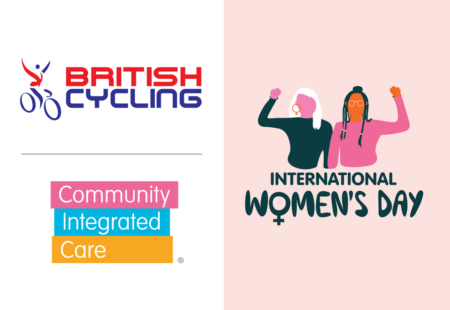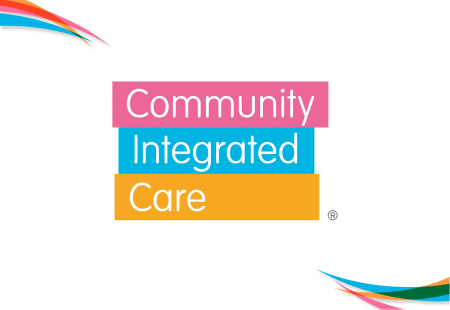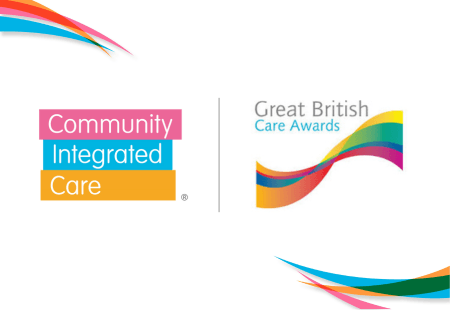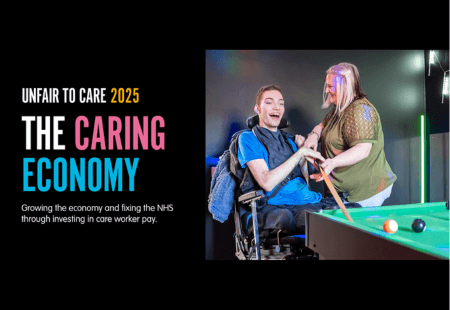
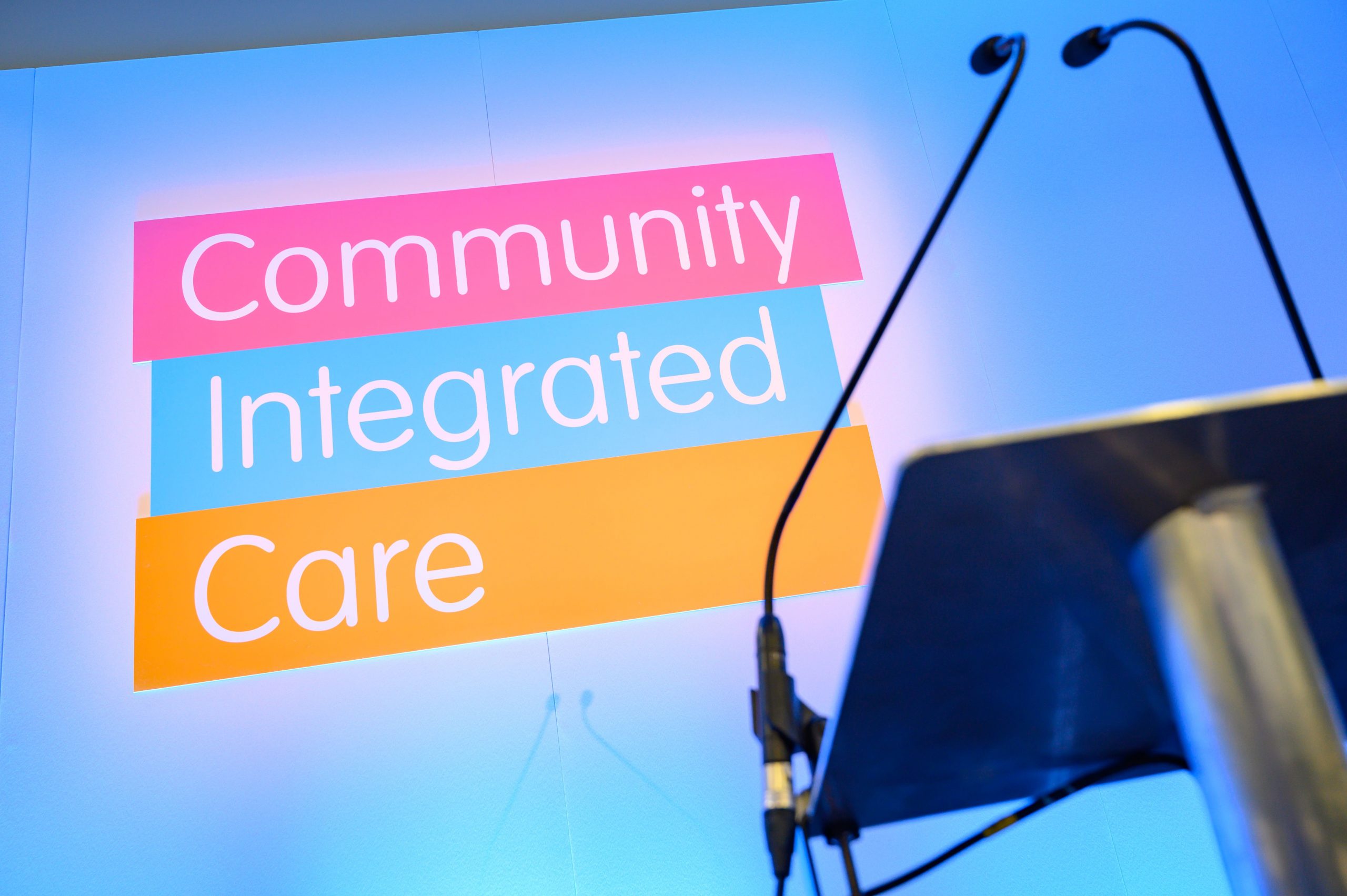
News
22/03/2023
We launch #UnfairToCare Scotland Supplement
On Wednesday 22nd March, Community Integrated Care published our Unfair To Care 22/23 Scotland Supplementary Publication, expanding on our recent Unfair To Care 2022/23 report with new data provided by the Coalition of Care and Support Providers in Scotland (CCPS), to illustrate the pay gap for Support Workers in Scotland.
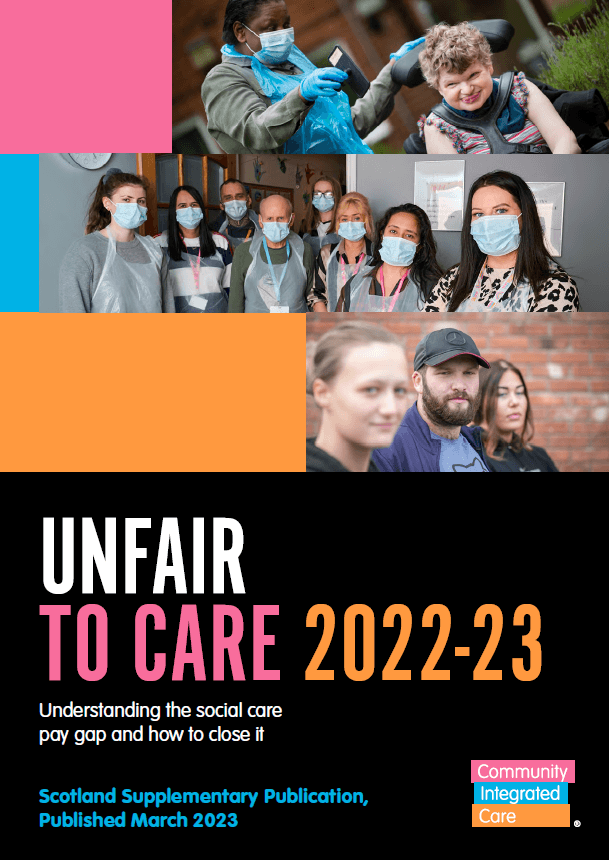 In December 2022, Community Integrated Care launched Unfair To Care 2022/23. This built on our original research with global experts in job evaluation – Korn Ferry – providing a first of its kind assessment of the role of a frontline Support Worker and their rates of pay.
In December 2022, Community Integrated Care launched Unfair To Care 2022/23. This built on our original research with global experts in job evaluation – Korn Ferry – providing a first of its kind assessment of the role of a frontline Support Worker and their rates of pay.
Using Korn Ferry’s industry-leading methods, this in-depth and illuminating research demonstrated that, far from being low-skilled, the Support Worker role is a highly responsible, complex and accountable one, requiring a wide range of rare vocational qualities and technical skills.
The research further demonstrated that many Support Workers would be paid significantly more in comparable roles within the public sector and NHS. In fact, in 2022, the pay gap between an average Support Worker in England and the equivalent role of a Band 3 Worker in the NHS, amounted to a staggering 41% or £8,000 a year.
At the time of publishing Unfair To Care 22/23, our charity was unable to access any current, accurate data on average pay rates in Scotland. Therefore, we’re delighted to now be able to share this Supplementary Report, which illustrates the current pay gap in Scotland, using data generously collated by our partners at CCPS. You can read the full publication here.
The publication shows how, in Scotland, despite the Government’s ongoing commitment to improve social care, we still see significant gaps between Support Worker pay and roles of equivalent size in the NHS and public sector in Scotland – 21% or £4,330 when compared with the NHS Band 3 Worker.
The research also shines a light on the pay gap between Support Workers and roles of the same size within the retail industry in Scotland – the vast majority of which have a reference to ‘management’ or ‘leadership’ within their job titles, also demonstrating a gap in the level of respect extended to that of a Support Worker.
Teresa Exelby, Chief People Officer at Community Integrated Care, says: “We’d like to thank our partners at Scottish Care, CCPS, and its member organisations for their vital contributions to this report. As a proud provider of support to more than 300 people, and employing 1000 caring and committed colleagues in Scotland, we were determined to extend our Unfair To Care 22-23 research to Scotland and unveil the facts and figures surrounding the pay gap for our social care workforce in the region.”
“It is disheartening to see that, at a time when we face unprecedented workforce shortages and an extraordinary cost-of-living crisis, our Support Worker colleagues are still fighting for parity of pay, with roles in parallel sectors, that are of equal skill and responsibility, being paid considerably more.”
“Whilst we are hugely supportive of the attempts by the Scottish Government to properly pay and professionalise the role of a care worker, more still needs to be done. It is particularly disappointing to see that the Scottish Government has chosen to raise the minimum sector rate by only 3.8% to £10.90 from April onwards, meaning that the pay gap will undoubtedly increase, and our colleagues will continue to feel undervalued and underappreciated.”
“We hope that this research shines a much-needed spotlight on the painfully unfair treatment of the social care sector, and we call on Scottish Government to invest in social care, act now, and make the change that is required so that it is no longer unfair to care.”
You can read the full Supplementary Publication at www.UnfairToCare.co.uk

